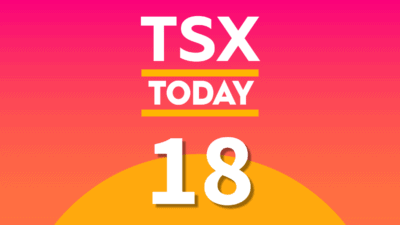Canada’s largest corporations are lenders. Banks are the largest and most profitable entities in the country, despite the current downturn. Financial institutions have been deemed essential businesses, bankers and wealth managers are well positioned — at least, for the moment.
However, there’s trouble brewing on the horizon. The unprecedented shutdown in the broader economy will eventually be reflected on bank balance sheets. Here are the three biggest challenges lenders could face in 2020 and beyond.
Unemployment
Decades of robust economic growth and abundant job creation convinced a generation of Canadians to live beyond their means. Auto loans, credit card debt, personal lines of credit and other forms of consumer debt were worth $648 billion at the end of last year. That’s 26.6% of the nation’s gross domestic product (GDP).
Now, GDP is expected to decline, while the unemployment rate could hit double digits. Things have changed quickly, and millions have lost their jobs. Every week, the number of delinquencies on these consumer loans stack up. Eventually, these will be reported when banks report quarterly earnings.
Real estate
Mortgages, unsurprisingly, are the largest segment of consumer debt by far. Real estate has been a national obsession for the past decade. Household mortgage debt was worth $1.341 trillion at the end of 2019. In other words, mortgage debt was worth more than half of GDP.
This historic debt binge has made residential houses overvalued. In Toronto, Hamilton, and Vancouver, house prices could lose up to a third of their value if they readjust to intrinsic value. That’s a terrible outcome for households and their lenders.
Royal Bank of Canada and Canadian Imperial Bank of Commerce both have extensive exposure to housing. But Equitable Bank seems like the most vulnerable here.
Oil price/business loans
Homeowners and consumers aren’t the only ones on the edge. Corporations of all sizes are highly leveraged as well. Business loans are generally less favourable and more expensive for the borrower. Now, many have been pushed to the verge of bankruptcy.
The dramatic drop in the price of crude oil has made energy giants vulnerable. Oil and gas producers across the country could default on their loans en masse. Scotiabank is heavily exposed to the crash in oil prices.
Plenty of other businesses are in line to default as well. Real estate trusts, property developers, retail giants, and auto part suppliers could all fall like dominoes in the next few months. Governments have unleashed fiscal measures to prop them up for now, but there’s no way to predict how long the economy could take to recover lost ground.
Foolish takeaway
There’s simply too much risk on the horizon. Leverage is usually the source of this risk, so investors should approach bank stocks with caution.
Canadian banks have capital locked up in an economy that will decline in 2020. Unemployment is already rising, while real estate doesn’t look encouraging. The energy sector has also been stymied. Ultimately, banks will see this trauma reflected on their balance sheet. Investors should beware and prepare for the worst.








